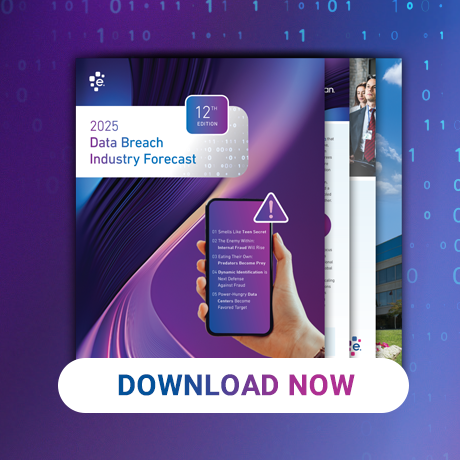At A Glance
It was popularised in the 1960s with the release of Letraset sheets containing Lorem Ipsum passages, and more recently with desktop publishing software like Aldus PageMaker including versions of Lorem Ipsum.Paragraph Block- is simply dummy text of the printing and typesetting industry. Lorem Ipsum has been the industry’s standard dummy text ever since the 1500s, when an unknown printer took a galley of type and scrambled it to make a type specimen book. It has survived not only five centuries, but also the leap into electronic typesetting, remaining essentially unchanged. It was popularised in the 1960s with the release of Letraset sheets containing Lorem Ipsum passages, and more recently with desktop publishing software like Aldus PageMaker including versions of Lorem Ipsum.
New Text!


Heading 2
Heading 3
Heading 4
Heading 5
- This is a list
- Item 1
- Item 2
- Sub list
- Sub list 2
- Sub list 3
- More list
- More list 2
- More list 3
- More more
- More more
This is the pull quote block Lorem Ipsumis simply dummy text of the printing and typesetting industry. Lorem Ipsum has been the industry’s standard dummy text ever since the 1500s,
ExperianThis is the citation

This is the pull quote block Lorem Ipsumis simply dummy text of the printing and typesetting industry. Lorem Ipsum has been the industry’s standard dummy text ever since the 1500s,
ExperianThis is the citation
| Table element | Table element | Table element |
| my table | my table | my table |
| Table element | Table element | Table element |

Media Text Block
of the printing and typesetting industry. Lorem Ipsum has been the industry’s standard dummy text ever since the 1500s, when an unknown printer took a galley of type and scrambled it to make a type specimen book. It has survived not only five centuries, but also the leap into electronic typesetting, remaining essentially unchanged. It was popularised in the 1960s with the release of Letraset sheets containing Lorem Ipsum passages, and more recently with desktop publishing software like Aldus PageMaker including versions of Lorem Ipsum
My Small H5 Title


Although 60-day automotive loan delinquencies fell 1.7 percent at a national level when comparing Q1 2014 to Q1 2013, twenty-two states actually experienced a delinquency increase.

Experian’s most recent Credit Trends study analyzing current debt levels and credit scores in the top 20 major U.S. metropolitan areas found that Detroit, Michigan, residents have the lowest average debt ($23,604) and Dallas, Texas, residents have the highest average debt ($28,240).1

Surag Patel, vice president of global product management for 41st Parameter, led a panel discussion on Digital Consumer Trust with experts from the merchant community and financial services industry at this week’s CNP Expo. During the hour-long session, the expert panel – which included Patel, Jeff Muschick of MasterCard and TJ Horan from FICO – discussed primary research explaining the $40 billion in revenue lost each year to unwarranted CNP credit-card declines and what businesses can do to avoid it. Patel began the Thursday morning session by asking the audience how many have bought something online—of course, everyone raised their hands. He then asked how many had been declined—about half the hands stayed up. “Of those with your hands still up,” he said, “how many of you are fraudsters?” The audience chuckled, but the reality of false positives and unnecessary declines is no laughing matter. Unnecessary declines cause lost revenue and damage the customer relationship with merchants, banks and card issuers. The panel cited a 41st Parameter survey of 1,000 consumers and described their responses to the question, what do you do after you get declined? While many would call the card issuer or try a different payment method, one in six would actually skip the purchase altogether, one in ten would purchase from a different online merchant, and one in twelve would go buy the item at a brick-and-mortar store. So regardless of who the customer blames, ultimately, when a good purchase is declined, everybody loses. Jeff Muschick, who works in fraud solutions for MasterCard, spoke about the need for a solid rules engine, and recommended embracing new tools as they emerge to enhance their fraud prevention strategy. He acknowledged that for smaller merchants, keeping up with fraudsters can be incredibly taxing, and often even at larger organizations, fraud departments are understaffed. For that reason, he highlighted a tool that many fraud prevention strategies are leaving on the table, and that’s cooperation: “We talk about collaboration, but it’s not as gregarious as we’d like it to be.” TJ Horan, who is responsible for fraud solutions at FICO, encouraged merchants, banks, and card issuers to mitigate the damage of good declines through customer education. He observed that “if there was a positive thing to come out of the Target breach (and that’s a big ‘if’), it is an increase in general consumer awareness of credit-card fraud and data protection.” This helps inform customers’ attitudes when they are declined, because they realize it is probably a measure being taken for their own protection, and they are likely to be more forgiving. Click here for more information about TrustInsight and how online merchants can increase sales by approving more trusted transactions.
In this article…
typesetting, remaining essentially unchanged. It was popularised in the 1960s with the release of Letraset sheets containing Lorem Ipsum passages, and more recently with desktop publishing software like Aldus PageMaker including versions of Lorem Ipsum.


